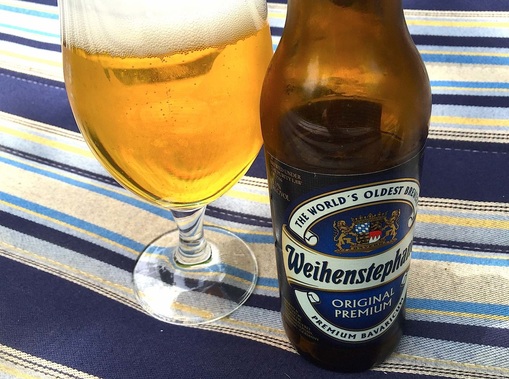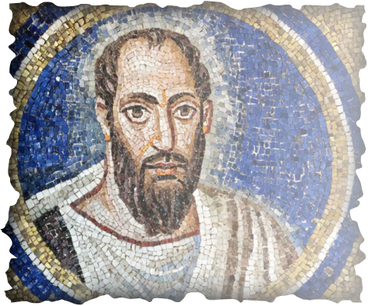|
Today, I told my friend, who invited me and my family to his lake for an afternoon swim under the hot Boulder Colorado sun, that I just crossed off from my bucket list a most enjoyable dive into a lake of deep, cold water. I enjoyed it greatly. I thought it was wonderful. The water was mysteriously dark, deep, and freezing to the bones. Nice! Enjoyment was on my mind, and I shared that crossed-off item with my friend. Our minds are everything. Our minds, our thoughts, make us who we are. My mind is everything that I am and everything that I ever was. All of my present and past experiences are shaped by my mind. And every experience (all the bad, good, and even ugly ones) in my life is felt as such because of my mind.
Every act and every fact is created, shaped, and shared by our thoughts. There's nothing in the universe that exists without someone first having a thought about it. This may not be obvious. Try to name one thing that exists, has existed, or will ever exist without a thought. You can't. Therefore, if you are constantly doubting, endlessly worrying, always fearing, it won't matter how successful you become, how much money you have, how big your house is, or who's in your bed - you won't enjoy any of it. I could share my bucket list with you. All of us could write our own lists of goals, accomplishments, and things to achieve that are intended to bring enjoyment to our lives. The reality is that we're all trying, working really hard, to enjoy life right now, at the present moment. But most of us don't actually achieve that state. This is how the mind works. Sam Harris writes in Waking Up: A Guide to Spirituality without Religion,"
And here's the key to life. How you interpret the present moment (ie. Am I enjoying this freezing lake water?) is contingent upon how you think about the present moment, regardless of what you're actually doing. Around 67 AD, a man named Paul wrote a letter from prison that taught a lot about the mind, truths that I share at my weekly family fellowships, such as:
That's a good one. Wayne Dyer writes in The Power of Intention,
The Buddha taught that what you think, you become. True. Descartes taught that everything exists because you think. Yes. I encourage you to investigate certain truths for yourself and learn how to be mindful about what you're thinking, regardless of what you are doing. In this article, you'll learn the basics of how people make beer. Thank God for those people, because there's a lot to make beer. To make beer, you need:
Before you can brew beer, you must take grain from the field and turn it into malt, which is the vital ingredient to making beer.
Malt Barley is the grain used by most brewers. Barley brings a sweet, juicy, and biscuity character to beer. Oat and rye are not so commonly used. The best type of barley to use is called maritime "two-row," called that because of two rows of grain within each ear and it grows near the sea. U.S. craft brewers may import malt from Europe when crafting specific beer flavors. Barely needs to be washed thoroughly to clean it and remove bacteria. Germination begins when the grain absorbs moisture. At a certain moisture level, the grain is spread out to dry and germination continues for several days. During germination, complex chemical changes occur that turn proteins into enzymes, and the starch in the grain becomes soluble. When the embryo of the plant grows and tiny roots break through the husk, this is called modification. To create an ale, a brewer might want a fully modified malt, so that the enzymes convert the starch into sugar. To create a lager, a brewer might want a poorly modified malt, so that proteins remain. This grain is taken to the kiln to heat up and dry. All brewers need malt that is gently roasted to yield lots of enzymes. This is called pale malt. When you heat up the grain, you produce darker malts for amber, brown, black, and chocolates. Unmalted roasted barley is heated at very high temperatures and can be used for stouts. Hops Hops is a plant that contributes bitterness to the beer. Bitterness balances the sweet biscuity taste of malt. Hops also brings aromas and flavors. Hops are picked and dried. Then they are turned into pellets my milling and reduced under great pressure. Some big breweries use hop extract syrup. There are many different kinds of hops. Hope are grown all over the world. American hops are robust in their citrus character. Lager hops may come from the Czech Republic. Germans call their hops noble. English hops have medium bitterness. Each variety of hops, just like grapes, can have their own character, flavor, and aroma. Brewers will often blend more than one hop variety to achieve what they desire in their beer. Water Beer is mostly water. A beer could be about 93% water. Therefore, water quality is critical. Crappy water, crappy beer. For centuries, breweries have used natural well or spring water for the best quality water. Brewers refer to water as liquor, and they adjust their liquor to suit their purposes. All quality brewers filter and cleanse their liquor to remove impurities and agricultural chemicals that can affect the beer. Yeast Yeast is a single-celled plant, a fungus, that turns a sugary liquid into alcohol and carbon dioxide. It wasn't until the 18th century that folks were able to explain how yeast plays a critical role in brewing. Louis Pasteur and his microscope showed that alcohol was produced by a natural chemical reaction in which yeast cells multiplied as they converted sugars into alcohol and carbon dioxide. There are two types of yeasts that brewers use: ale and lager yeasts. These two types of yeasts are often called cold fermenting and warm fermenting strains. Ale yeasts will work at 55℉ and above, and lager yeasts work at cold temperatures as low as 40℉. Brewing To brew, you have to grind the malt into grist. Then the malt and liquor are mixed in a large vessel called a mash tun. The mixture is left to sit and to allow the enzymes in the malt to convert the starch into two types of sugar. Maltose is fermentable. Dextrins give body and flavor to the beer. The sugars dissolve and produce and extract called wort. When the time is just right, the brewer opens the vessel and the drained wort filters through the spent grain. The wort is then pushed to the copper or stainless steel vessel. The boiling wort bubbles up through a central tube in the vessel, while hops are added through a top hatch of the vessel at specially-selected times. After everything is boiled, the hopped-up wort is filtered and drained into another vessel called a hop back. This liquid is cooled and run through fermenting vessels where the liquid yeast is mixed, or "pitched." The conversion to alcohol may take as long as two weeks. Finally, the liquid is run into tanks for a long, slow second fermentation and ripening to a full-flavored beer. Ale and lager fermentation processes are different, but the goal is the same -- to produce beer that we can drink and enjoy. The Most Fundamental Change in Our Relationship with God: Paul, Mystery, and Blue Elephants8/1/2015 About 50 AD, a man named Paul wrote about the most fundamental change in our relationship with God. He revealed a great mystery and made simple-to-understand that:
He revealed the greatest spiritual truth that anyone could ever know. Once I learned what it was, it changed my life forever. I encourage other men to read the following article and investigate certain truths for themselves and learn to how be better men, wonderful husbands, and loving fathers. Let's start with the great mystery that Paul revealed. Mystery What’s a mystery? A mystery is anything that’s kept a secret, and remains unexplained. Paul was a man who revealed one of the greatest mystery of the world. And it triggered a fundamental change in humanity's relationship with God - a relationship in which believing, rather than behavior, became the key to a more than abundant life. Paul was born Jewish. He lived in Tarsus, which is now Turkey. He lived within the Roman empire. He traveled to Jerusalem, Asia, Greece, Rome. And he taught and wrote. Paul wrote 13 letters. He never met Jesus, the man, but met his friends and disciples, and for many years, he actually had a job to hunt and persecute them. He grew up under Roman law, and he knew the Jewish law or Law of Moses (Old Testament) very well. Under Jewish Law, good behavior included what was/is called “indulgences,” where you essentially pay for God’s love. The more money you pay the church, the more of God's love you receive. This is the crap you get from Abrahamic religions that limited ignorant people of the past. Because of men like Paul, we know better. One day Paul was walking along a road with his friends and donkeys, when a very bright light hit him right in the face. It blinded him. Paul heard a voice speak to him. The voice told him to go see a man name Ananias who would heal him. And on that day, Paul became a new man. That miraculous experience changed him forever. Paul started traveling from country to country, teaching about how everyone can have a direct, personal relationship (fellowship) with God and experientially know and practically apply truths to one’s life. All over the world, he traveled, teaching, writing, and fellowshipping. And Paul was telling everyone a secret that was revealed to him. Paul was on a mission to share that revelation. A great mystery that has been hidden from everyone since time began was being revealed. The Greatest Mystery of All Time This great mystery that Paul revealed is the greatest spiritual truth that anyone could ever know. Once I learned what it was, it changed me and my life forever, just like Paul's life was changed. And it’s written down. You can read it for yourself. It's written in the Bible. Now, let's get something straight about this book. Most of the bible is actually NOT written to you. Most of it is written for you to read and learn from. There are only a few parts of the bible that are actually written to you and for you to empirically understand and practically apply to your life. To understand what you're reading, you could do a word study. It's kinda fun. We do word studies in our weekly family fellowships. A couple thousand years ago, King James hired a bunch of smart people to translate the old Greek and Aramaic versions of the bible and translate them into English. So, just about every word in the King James version can be researched back to its original language. If we take a look at the word mystery, it appears many times in the bible. The Greek word for mystery is musterion. Out of the many occurrences of that word, 17 refer to the great mystery revealed by Paul. Word Study and Blue Elephants Let’s get a piece of paper, and take notes, while looking up a few of them.
In our recent family fellowship, I asked everyone to pass on the following sentence by whispering it in your neighbor's ear. The sentence was, "The big, blue elephant stomps, chomps, and blows his horn." I whispered it to someone in our fellowship; they whispered it to someone else sitting next to them; and so on. At the end of the line of whispering, the sentence was hardly recognizable. Paul knew this problem of people accurately learning truths told by others. And that's why he wrote down his revelation about the mystery. Paul wrote and explained the great mystery in his letters, so that we could study and understand it today in our fellowships.
This type of teaching was smack in the face of the Jewish Law and the Law of Moses. Folks who benefited from these laws, where you have to pay for God's love, were threatened by this type of antagonistic teaching. Both Paul and Jesus taught that the old Abrahamic religion was dead and the new way of life was through believing with your mind and freely receiving the love of God manifested in your life.
Back then, Paul's revelation and teaching was shocking to people. Religion is Dead His insight triggered a transformative change in the way common folk understood themselves, their spiritual position and abilities, and how they related themselves to others who were in preposterous religious power. Paul made spirituality easy to understand. He said that we're all spiritually the same, where no one is greater than anyone else, and that believers are of the same spiritual family body. This revelation killed any need for religion. Why pay the farmer, when you can milk the cow for free? Everyone has a direct connection and relationship to God, Spirit. The great mystery is a big topic to study. Can’t be done in one word study, one fellowship, or one article. But that's the fun part of studying and learning -- it never ends. But let's continue with one last verse. And it's in Colossians. Turn to Colossians 1:26-27 in the King James Bible. It says, "Even the mystery which hath been hid from ages and from generations, but now is made manifest to his saints, to whom God would make known what is the riches of the glory of this mystery among the Gentiles; which is Christ in you, the hope of glory." Paul writes this to help reveal the great mystery in more detail. Every believer can have Christ in him or her, which is the gift of holy spirit. Holy spirit is a gift from God to every believer. And it's given unconditionally. "Christ in you" in the bible means the love of God in the renewed mind in manifestation. So, where the bible says "God in Christ in you," that means that you can have the gift of holy spirit in you, from God, held in your mind (renewed mind) and manifested in your life. How can God be in your mind? Well, you have to understand what God is, and is not. God is not a man. God is not an old man with curly hair floating in the clouds, waving his finger, and doing good and bad things. That's delusional. You might as well believe in Poseidon. Actually, God is what the bible says it is: spirit, love, light, energy, everywhere, powerful.
That's how every believer can have the love of God in the renewed mind in manifestation. It's all about believing. And it starts with your mind. Conclusion That’s what Paul revealed. That’s the great mystery -- we can have the love of God in our renewed minds manifested in our lives. Paul taught that we are fellow heirs and of the same spiritual body with other believers. And God’s riches of this mystery is Christ in you, holy spirit.
Investigate for Yourself I encourage you to read, study, and meditate upon these things. Investigate certain spiritual truths for yourself by studying what has been made available to us. The great mystery is now made known. It’s no longer a secret. |
Archives
December 2021
|







